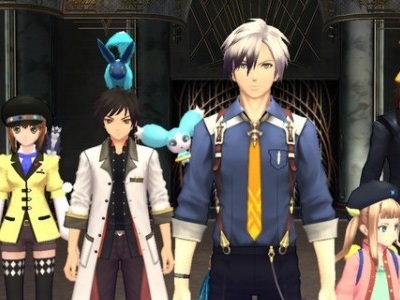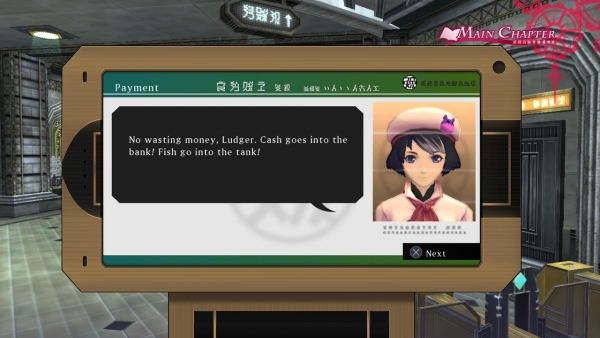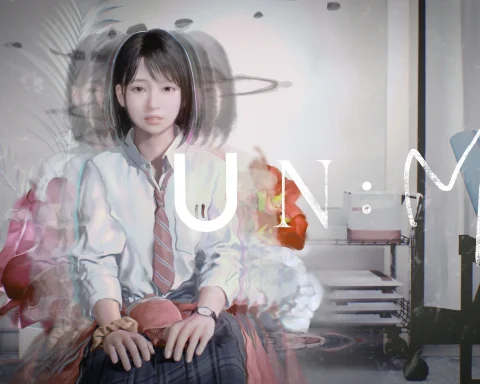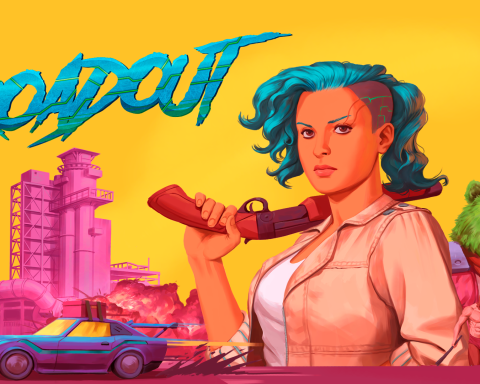Review by Clark A.
For as long as the Tales franchise has been running, it’s impressive that only two true “sequels” exist. There’s a certain appeal in revisiting the characters of a past instalment after a grand quest, but it’s also challenging to execute a story that doesn’t feel tacked on or too radical a departure from the previous entry. The most notable sequel in the franchise, Tales of Symphonia: Dawn of the New World, was met with great criticism for doing a bit of both.
Now while Tales of Xillia 2 doesn’t exactly ace the concept of a sequel JRPG, it gives me hope that Bandai Namco is realising what makes the concept work. The game borrows much from its predecessor but still manages to grant the new title a distinct feel through design choices that, while experimental, don’t compromise the integrity of the original title.
Like with Dawn of the New World, Xillia 2 puts players in charge of a new protagonist within the familiar world: the rather fashionable Ludger Kresnik. The key difference between these two sequels, though, is that the former game’s character was thought of as whiny and obnoxious whilst the latter’s hero might just evade memory altogether.
See, Ludger is a bit of a blank slate. The Tales series is normally renowned for its characters rather than its storylines, so the choice of a largely silent protagonist is a jarring one that won’t gel well with many players initially. If you can bear with his stoic serenity, though, you’ll realise that this design choice pays off story-wise both design-wise.
While many JRPGs offer the player the ability to occasionally pick from dialogue options whilst locked in conversation, Xillia 2 uses what feels like hundreds of them for its main story and sidequests alike and all of them revolve around Ludger. Making decisions is a crucial aspect of most cutscenes; so much so that grave decisions have time limits thrown in to add dramatic intensity.
Some will complain that these choices are overused relative to their worth and that’s probably a fair assessment. That said, I appreciate the way these segments keep the player thinking about not just Ludger but the story at large. Generally speaking, making Ludger’s character open to player interpretation is a clever way of integrating a new character into a sequel.
The choices do have some merit as well; the options one picks for Ludger do have direct impacts on character relations and there’s a bit of detective work involved in guessing which reply would cater to which character’s personality. You’ll also get different endings and cutscenes depending on the outcome of your decisions, which is a nice touch. Of course, one can also question the depth of these choices since you’re almost never given more than two choices to work with. I suspect the amount of time needed to implement this would not warrant the cost, however.
The actual plotline Ludger and company are hurled into is reasonably captivating by series standards as well. The moral dilemmas the protagonists are thrust into are of particular interest. Character backgrounds are cleverly written into cutscenes rather well, which makes the series trademark optional skits and the occasional character-focused chapters less essential than in other titles.
With that story comes marked linearity, however. The player is spoon fed the exact parameters of the next task at the tap of a button and the plot is designed to progress at a crisp pace. Now, I don’t mind linearity in my JRPGs in the slightest, but the subsequent attempts to flesh out the game feel superfluous at best. Players can advance through chapters in a mere hour or two and major happenings rear their head in each segment. In fact, the only reason the player is even introduced to the job board questing system is because they need money to progress through the story.
One key component of the story is the ridiculous 20,000,000 gald debt that Ludger incurs due to extensive surgery. Aside from making free health care look good, this obligation puts Ludger on a tight financial leash. If the player hoards too much cash, the bank marauds Ludger after every battle, cutscene, or area change. It’s a rather novel concept, adding a layer of tension to financial decisions not often seen in modern JRPGs, but it does the game’s pacing no favours as you’ll have to occasionally divulge from the focal point.
Were one to chop out the padding, the result would be a pleasantly succinct 20 hour game, and it probably did need the padding chopped. That probably sounds like a hypocritical assessment given that I recently raved about Legend of Heroes: Trails in the Sky despite it being an incredibly padded out game, but the difference maker is Xillia 2’s brisker plot. Trails in the Sky’s questing system was absolutely integral to the characters, story, and even the world at large, which in turn wove a very appealing, humble adventure set over a lengthy period of time. Xillia 2 seems to make heavy use of sidequests because that’s what the developers felt that the genre does. I would have preferred to see some of that effort instead applied to fleshing out the core story even more because it’s clear that Xillia 2 wants to articulate this aspect above all.
If Xillia 2 aces anything outright, it’s battle system that is one of the finest in the series to date. Granted, if you view Tales games as button mashers, little is going to change your mind here in spite of the complexities on offer (even if this one like the majority of its predecessors has the option to make battles legitimately challenging), but Ludger’s combat abilities are so divine that naysayers may find themselves swooning over the strapping young lad.
The phrase “silent but deadly” has never so aptly described a man clad in dress shirt and suspenders. Though this game has some rather complex systems running in the background to facilitate the skills and artes (magic powers) of the other characters, Ludger is the most interesting as he can swap between swords, hammers, and pistols at will. While these weapons have clear situational advantages, the sheer snappiness of swapping between them encourages the player to do so constantly. Having access to a wicked black form that deals ridiculous combo damage doesn’t exactly tarnish his reputation either.
If there’s any downside to the game as a sequel, it’s the heavy reuse of assets from the first title to shape the general world and feel. That’s not to say Xillia 2 feels like an expansion more than a legitimate follow-up – it absolutely does – but the extent to which things haven’t changed make the return trip feel a tad bland.
This works in reverse as well; the story won’t be totally compelling if you haven’t played the first title. Though there was a clear endeavour to make the game accessible to newcomers by making past events and lingo from the first game easily accessible via the main menu, there’s only so much plot and character development you can squeeze into a couple of paragraphs before you wish the game simply came packed in with the first. While these items aren’t outright essential as many characters and their resulting stories are new to Xillia 2, ample character development between games will be glossed over and ultimately create a different type of blandness felt on the opposite end of the spectrum. I supposed it’s an inherent difficulty in writing sequels to JRPGs set in the same world as a previous game, but Xillia 2 will either feel less than fresh or too confusing to be fully appreciated.
For all my quibbles regarding Tales of Xillia 2 from a general design standpoint, it still manages to shake up the series’ formula in the right ways. Fans will not want to miss what is one of the more original approaches to the series because, when it hits its strides, this alleged “throwaway sequel” feels like the peak of this long-running franchise.
– Clark A.
Anime Editor
Email me at: clarka@digitallydownloaded.net
Our Comments and Scoring Policy











